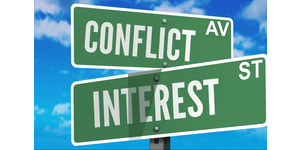
The LSBA Rules of Professional Conduct Committee has proposed that the LSBA recommend to the Louisiana Supreme Court to amend Rule 1.10 of the Rules of Professional Conduct. The rule in its current form provides:
(a) While lawyers are associated in a firm, none of them shall knowingly represent a client when any one of them practicing alone would be prohibited from doing so by Rules 1.7 or 1.9, unless the prohibition is based on a personal interest of the prohibited lawyer and does not present a significant risk of materially limiting the representation of the client by the remaining lawyers in the firm.
(b) When a lawyer has terminated an association with a firm, the firm is not prohibited from thereafter representing a person with interests materially adverse to those of a client represented by the formerly associated lawyer and not currently represented by the firm, unless:
(1) the matter is the same or substantially related to that in which the formerly associated lawyer represented the client; and
(2) any lawyer remaining in the firm has information protected by Rules 1.6 and 1.9(c) that is material to the matter.
(c) A disqualification prescribed by this rule may be waived by the affected client under the conditions stated in Rule 1.7.
(d) The disqualification of lawyers associated in a firm with former or current government lawyers is governed by Rule 1.11.
The rule in its current form does not specifically address the imputation of conflicts to non-lawyers such as law clerks, secretaries and paralegals. Nor does the rule in its current form specifically address the screening of lateral hires. The Rules of Professional Conduct Committee’s proposed amendments would address both of these issues.
The Committee will propose that the LSBA recommend two amendments to Rule 1.10. First, as to lateral hires, the committee recommends the following amendment:
(c) Except with respect to paragraph (d) below, if a lawyer is personally disqualified from Representing a person with interests adverse to a client of a law firm with which the lawyer was formerly associated, other lawyers currently associated in a firm with the personally disqualified lawyer may represent the person, notwithstanding paragraph (a) above, if both the personally disqualified lawyer and lawyers who will represent the person on behalf of the firm act reasonably to:
(1) identify that the personally disqualified lawyer is prohibited from participating in the representation of the current client; and
(2) determine that no lawyer representing the current client has acquired any information from the personally disqualified lawyer that is material to the current matter and is protected by Rule 1.9(c); and
(3) promptly implement screening procedures to effectively prevent the flow of information about the matter between the personally disqualified lawyer and the other lawyers in the firm; and
(4) advise the former client in writing of the circumstances that warranted the implementation of the screening procedure required by this Rule and of the actions that have been taken to comply with this Rule.
(d) The procedures set forth in paragraph (c) may not be used to avoid imputed disqualification of the firm if:
(1) the lawyer’s representation of the former client was in connection with an adjudicative proceeding that is directly adverse to the interests of a current client of the firm; and
(2) the proceeding between the firm’s current client and the lawyer’s former client is still pending at the time the lawyer changes firms.
Second, as to non-lawyers such as law clerks, secretaries and paralegals, the committee recommends the following amendment:
(g) The rule in paragraph (a) does not prohibit representation by others in the law firm where the person prohibited form involvement in a matter is a nonlawyer, such as a paralegal or secretary. Nor does paragraph (a) prohibit representation if the lawyer is prohibited from acting because of events before the person became a lawyer, for example, work that the person did as a law student. Such persons, however, shall be screened from any personal participation in the matter to avoid communication to others in the firm of confidential information that both the nonlawyers and the firm have a legal duty to protect.
The LSBA House of Delegates will meet on Saturday, January 21, 2023, to consider the committee resolutions.
